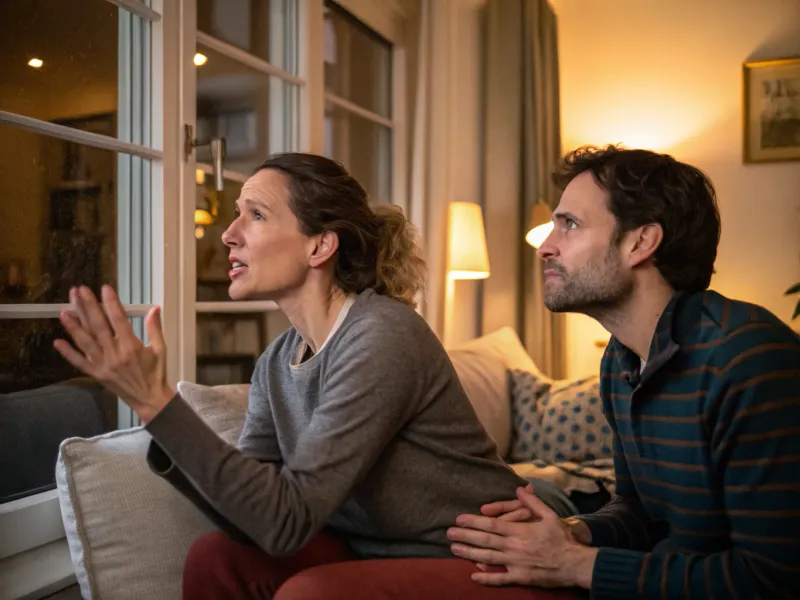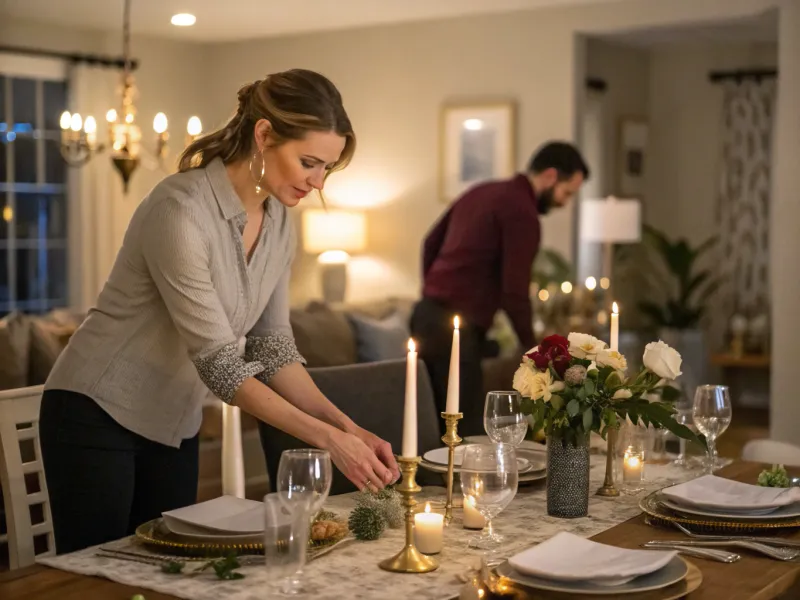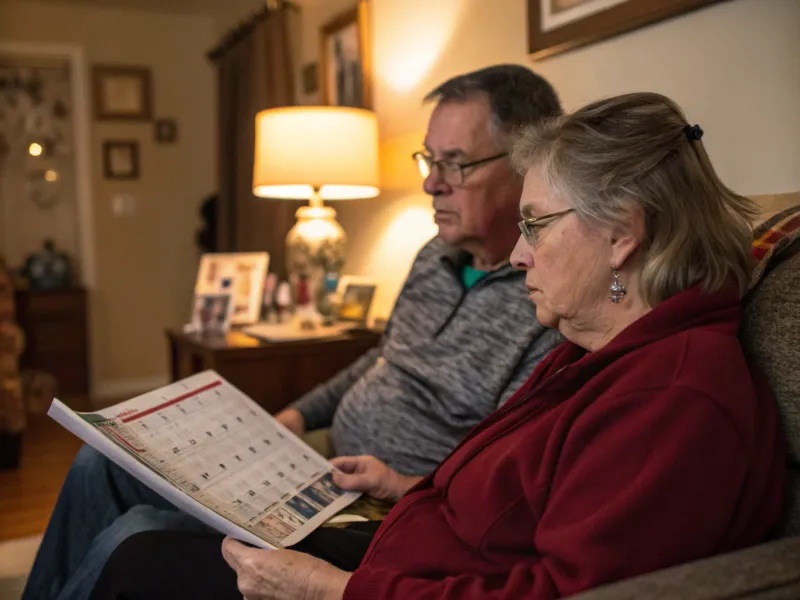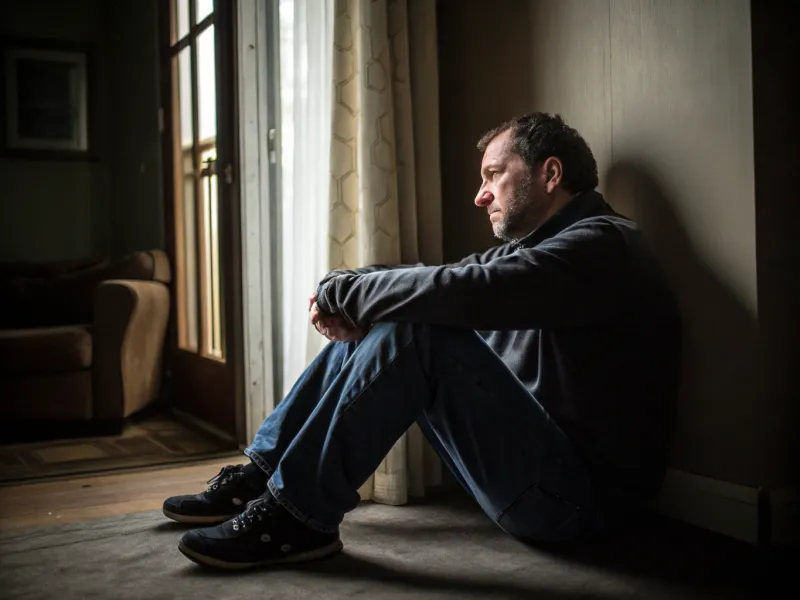29 Signs of a Husband Who Is Settling for Comfort Instead of Real Love
Not every man who stays in a marriage is truly in it. Some stay because it’s safe. Predictable. Convenient. Comfortable.
But comfort isn’t the same as connection—and over time, that lack of emotional depth becomes painfully obvious.
If you’re starting to feel like something’s missing… like you’re more of a life partner than a loved partner… you’re not imagining it.
Here are some subtle and not-so-subtle signs a husband may be settling for comfort instead of choosing true, active love:
1. Emotional Disconnection

He avoids deep conversations at all costs. Small talk is fine. Real talk? He shuts down or changes the subject. Emotional intimacy feels like a chore, not a desire. He rarely asks how you really feel.
It feels like you’re speaking a language he no longer understands—or chooses not to. Vulnerable conversations make him visibly uncomfortable. He either deflects with humor or goes silent. That consistent unwillingness to dive deeper can leave you feeling emotionally starved, even if he’s physically present.
And when he does engage, it’s surface-level or performative—as though he’s checking a box rather than reaching for your heart. Real connection requires effort, and if he’s not willing to show up when it matters most, it could be a sign that he’s settled into emotional autopilot.
2. Routine Affection

He never initiates affection unless it’s routine or expected. Kisses feel mechanical. Hugs feel obligatory. Passion? Missing. You used to feel seen. Now you feel invisible.
There’s no surprise touch on your lower back in the kitchen. No playful glance across the room. No warm hand reaching for yours just because. The spontaneity that once sparked excitement is replaced with mechanical gestures that feel more like obligation than affection.
Affection should be a language of connection, not a chore to check off. When intimacy is limited to scheduled interactions, you start questioning whether he even desires you anymore. And the absence of affection can feel like an emotional freeze-out.
3. Minimal Attention

He gives you “just enough” attention to keep things running. Bare minimum vibes. No spark. Just… functionality. He’s present, but not with you.
He’s there in body but not in mind or heart. He listens, but not deeply. He responds, but with the kind of bland acknowledgment that feels empty. There’s no active participation, no engagement beyond what’s needed to maintain peace.
You feel like a co-manager of the household instead of a romantic partner. It’s not that he’s hostile or cruel. It’s that he’s emotionally absent. And that absence, though quiet, echoes louder than words.
4. Uncelebrated Victories

He doesn’t celebrate your wins or sit with you in your lows. Emotional presence is lacking, and shared joys and sorrows go unnoticed. The connection feels absent.
You could land a new job, hit a goal, or even just get through a tough day, and he’d barely blink. He might mumble a “good job” but there’s no heartfelt celebration, no joy shared. It feels like your highs and lows exist in a vacuum.
Worse yet, when you’re in pain, you suffer in silence because leaning on him feels pointless. His comfort is cold or unavailable. Love is about witnessing each other. And when he stops witnessing you, you feel emotionally abandoned.
5. Checked-Out Listener

He zones out when you’re talking—even about important things. You’re not having conversations. You’re having monologues. The emotional engagement is missing.
You notice his eyes glaze over when you start talking. Maybe he nods, says “mhm,” or offers a vague reply, but you know he hasn’t really heard you. And when you bring it up, he accuses you of being dramatic or too demanding.
That pattern of tuning you out erodes trust and connection. Communication stops being a bridge and becomes a dead-end. It hurts because it tells you your voice doesn’t matter anymore.
6. Routine-Obsessed

He focuses more on routines than romance. Bills, chores, logistics—but nothing that makes love feel alive. The spark isn’t dim. It’s out.
While structure is necessary in a long-term relationship, it should never replace emotional connection. When everything becomes a task—from conversations to intimacy—the relationship loses its heartbeat.
Instead of planning time to nurture the emotional bond, he prioritizes the checklist. Life becomes a loop of responsibilities with no room for spontaneity, fun, or passion. That’s not a relationship—that’s cohabitation on autopilot.
7. Conflict Avoider

He avoids conflict by shutting down completely. Rather than work through things, he checks out emotionally or walks away. Growth takes a backseat to comfort.
Every disagreement becomes a dead-end because he won’t engage. He may walk out, go silent, or deflect with sarcasm—anything to avoid discomfort. But unresolved conflict festers. Avoiding the tough stuff doesn’t protect the relationship; it slowly erodes it.
True intimacy means facing challenges together. If he’s unwilling to meet you halfway when things get hard, he’s not committed to the deeper work love requires.
8. Roommate Vibes

He acts more like a roommate than a romantic partner. The spark isn’t dim. It’s out—and he’s fine with that. Emotional distance becomes the norm.
You share a home, bills, maybe even meals. But there’s no flirting, no deep connection, no sense that he’s excited to be close to you. Intimacy becomes a memory. Companionship becomes convenience.
You feel like you’re coexisting instead of growing together. There’s no fire, no tension, not even emotional friction. It’s not peace—it’s resignation disguised as stability.
9. Stalled Growth

He doesn’t try to grow with you anymore. Personal growth? Relationship goals? He’s not interested. The journey feels one-sided.
Whether it’s therapy, communication tools, or simply setting goals together—he won’t engage. He resists change, avoids vulnerability, and chooses to coast while you crave depth.
You feel like you’re dragging the relationship uphill alone. But love should be a mutual evolution, not a solo expedition.
10. Neglected Planning

He never plans anything just for the two of you. No dates, no surprises, no intention behind together time. Emotional investment is lacking.
You initiate everything. If there are moments of connection, it’s because you created them. He puts no thought into keeping the romance alive.
That absence of effort speaks volumes. When someone stops investing in togetherness, they’re choosing complacency over connection.
11. Emotional Neglect

He doesn’t ask what you need or want emotionally. Because he’s not truly invested in making you feel fulfilled. Your needs feel secondary.
It’s not just that he forgets to ask—it’s that he doesn’t seem to care. You could spell out exactly what makes you feel loved and still be met with a shrug. Emotional labor becomes your job alone, and over time, that imbalance wears you down.
He may assume everything is “fine” as long as the house is quiet and the bills are paid. But love isn’t about silence. It’s about attention. When he stops caring about what matters to you emotionally, it’s a sign he’s settled into a version of love that keeps him comfortable, but leaves you starving.
12. Appreciation Void

He stops showing appreciation. You’re expected to carry the emotional load, often without acknowledgment. Gratitude becomes a rarity.
He may enjoy all the things you do—the meals, the organization, the emotional support—but you wouldn’t know it by the way he acts. There’s no thank-you, no eye contact, no heartfelt acknowledgment. You feel taken for granted, not treasured.
Over time, this kind of neglect chips away at your spirit. We all need to feel seen and valued. When the appreciation dries up, so does your sense of being wanted, respected, and cared for.
13. Intimacy on His Terms

He doesn’t initiate intimacy unless it benefits him. Intimacy becomes routine—or rare. There’s no emotional connection behind it.
When intimacy becomes transactional, you stop feeling like a partner and start feeling like a placeholder. There’s no buildup, no desire, no warmth. It’s about release or convenience, not connection.
And when you initiate? You may be met with disinterest, avoidance, or distraction. That rejection stings. Because at its core, it’s not about intimacy—it’s about being wanted. Being chosen. Being adored. And when that disappears, something vital is lost.
14. Future Ignorance

He avoids relationship check-ins or serious talks about the future. He’d rather coast than dig deep. Emotional growth feels stunted.
Every time you bring up future goals, shared dreams, or even the state of your relationship, he brushes it off. “Why ruin the mood?” or “We’re fine” becomes his standard response. But fine isn’t fulfilling.
Without emotional check-ins, relationships drift. And without shared vision, you begin to wonder if you’re still building a life together—or just coasting side by side.
15. Contentment in Complacency

He seems content with “good enough” love. But you want soul-deep love—and he doesn’t seem interested in that anymore. Settling becomes the norm.
It’s not that the relationship is awful. It’s that it’s uninspired. Unchecked. Unquestioned. You crave more, and he doesn’t see the point. To him, if nothing’s broken, why fix it?
But love isn’t just about surviving. It’s about thriving. When he stops striving for better, it shows he’s given up on growth—and expects you to do the same.
16. Time-Based Marriage

He married you because it was “time”—not because it was right. This one may not show up until years later, in the form of quiet regret or restlessness.
You might hear it in offhand comments like “We were just at that age” or “It made sense on paper.” That logic-first approach to love lacks the fire and intention that healthy partnerships require.
Over time, that buried regret can become emotional distance. You start to feel like a life choice instead of a heart choice.
17. Change Aversion

He avoids change, even if change would heal the relationship. Therapy? Growth? Vulnerability? Too risky for his comfort bubble.
Even when things clearly aren’t working, he resists every opportunity to evolve. He may mock therapy, shut down emotional conversations, or roll his eyes when you suggest doing something new together.
Comfort becomes his currency, and anything that disrupts it—even healing—feels threatening. That kind of rigidity leaves no room for transformation.
18. Absence Ignorance

He doesn’t miss you—even after long absences. Out of sight, out of mind. The emotional bond feels fragile.
When you’re away, he doesn’t check in, doesn’t express longing, and doesn’t seem any different without you. Coming home doesn’t feel like a reunion—just a return to routine.
Love should miss. Love should reach. If your absence barely registers, it could mean your presence isn’t being cherished.
19. Emotional Imbalance

He resents your emotional needs—but never shares his own. This isn’t mutual disconnection. It’s imbalance. Emotional sharing feels one-sided.
He may accuse you of being needy, dramatic, or exhausting when you open up. But he never offers his own emotional truths in return. Vulnerability becomes a one-way street.
That imbalance breeds resentment. You feel like the emotional engine of the relationship while he coasts comfortably in silence.
20. Peace Over Intimacy

He cares more about maintaining peace than building intimacy. You feel silenced, not supported. Emotional depth is sacrificed for calm.
He prefers quiet over confrontation, but not in a healthy, respectful way. It’s more about keeping things surface-level and convenient than truly resolving anything. He avoids tension by brushing everything under the rug—and expects you to do the same.
This fake peace comes at the cost of vulnerability. Instead of growing closer through honest communication, you learn to suppress your voice to keep the waters still. And over time, that emotional silence turns into distance.
21. Luck Over Love

He talks about “how lucky he is” more than how in love he is. You’re appreciated, but not deeply wanted. Emotional connection feels shallow.
At first, it might sound sweet. “I’m lucky to have you.” But if that’s all he ever says—without genuine passion, intention, or romantic effort—it can feel more like politeness than love. You become a good decision, not a heartfelt devotion.
It leaves you wondering: Is he with you because he truly sees your soul, or because it just “worked out well”? Flattery without emotional intimacy feels hollow.
22. Emotional Availability Elsewhere

He’s emotionally available for others—but not for you. His friends, coworkers, even strangers get more presence than you do. Emotional priorities feel skewed.
You watch him laugh deeply with friends, give thoughtful advice to coworkers, or show empathy to acquaintances. But when it comes to you? He’s distracted, distant, or disengaged.
This emotional compartmentalization is confusing and painful. You wonder why everyone else gets the best version of him, while you get the leftovers. In a loving partnership, your emotional bond should come first—not last.
23. Fear of Solitude

He fears being alone more than he desires being truly connected. He’s in the relationship to avoid discomfort, not to nurture love.
He stays because it’s familiar, not because it’s fulfilling. When the fear of starting over outweighs the desire to build something meaningful, the relationship stalls.
You may sense that if the option of leaving felt safe, he would. But he clings to the comfort of your presence without putting in the emotional effort to make that presence feel sacred.
24. Content with Surface Love

He never asks “How can I love you better?” Because in his mind, things are “fine.” But fine isn’t fulfilling. Emotional depth remains unexplored.
When someone stops being curious about your heart, they stop being a true partner. He assumes that because you’re not yelling or leaving, everything must be okay. But deep down, you know “okay” isn’t enough.
You crave questions, connection, evolution. You want a partner who seeks to meet you in deeper places—not one who hides in comfort zones.
25. Begging for Crumbs

You feel like you’re begging for crumbs when you deserve the feast. And deep down, you know you’re not imagining it. Emotional fulfillment feels distant.
You find yourself clinging to tiny gestures—a rare compliment, a quiet conversation—because they’re all you get. You’re surviving on scraps, and even those feel inconsistent.
Over time, this dynamic breaks your spirit. You question your worth, your needs, and your voice. But the truth is: you’re not asking for too much. You’re asking the wrong person to meet you where they refuse to go.
26. Routine Over Romance

He focuses more on maintaining routines than nurturing romance. Love feels mechanical, not magical. The daily grind overshadows emotional connection.
Dinner gets cooked. Bills get paid. Calendars are synced. But where is the magic? Where are the surprises, the laughs, the small, intentional acts of love?
When a relationship runs like a well-oiled machine but lacks intimacy, it starts to feel transactional. You become teammates, not soulmates. And that kind of love slowly goes cold.
27. Avoidance of Emotional Growth

He avoids emotional growth opportunities. Self-reflection? Too challenging. Emotional maturity feels like a distant dream.
You suggest therapy, self-help books, honest conversations—and he dismisses them all. He insists he’s “fine as is” and resists anything that would require looking inward.
But love demands growth. It’s not about being perfect—it’s about trying. A man who won’t look in the mirror can never truly meet you in the depth of your emotional world.
28. Avoids Shared Adventures

A husband who avoids shared adventures may be settling for ease rather than excitement. With each passing day, he shuns spontaneous outings and prefers the comfort of routine. But what impact does this have?
Shared adventures fuel connection, creating memories that enrich a relationship. Without them, love can become stagnant, like a river that has lost its flow.
Imagine a couple whose travels are limited to the same vacation spot every year. Predictability might feel safe, but it lacks the thrill that binds souls. Could this be a sign of settling for less? It certainly might be.
29. Silent Withdrawal During Conflict

Silent withdrawal during conflict might hint at a preference for comfort over love. When disagreements arise, a husband who retreats to silence instead of engaging might be avoiding discomfort. This behavior, while seemingly peaceful, can lead to emotional distance.
Conflicts are natural in any relationship, but addressing them fosters growth and understanding. A pattern of silent withdrawal could mean he’s settling for a tension-free environment rather than building a resilient, loving partnership.
Imagine the quiet that follows a disagreement, where words are left unspoken. Is this a sign of settling? Perhaps it is.







